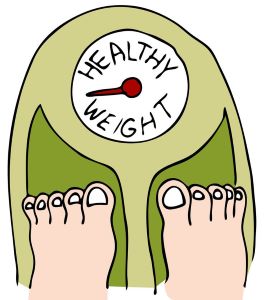Weight Gain for Vegans
By Reed Mangels, PhD, RD
A Vegetarian Resource Group member contacted us asking for suggestions for gaining weight. She’s always been slightly underweight but has recently lost weight. She’s active but has not increased her activity and hasn’t changed her diet so she’s not sure why she lost weight. She is vegan and doesn’t think she can eat any more than she is already eating. Her diet includes lots of whole grains, vegetables, and nuts.
One question that I had was about the unintentional weight loss. Usually people’s weight fluctuates a bit but unintentional weight loss of 5% of weight over 6 to 12 months is concerning and worth discussing with a health care provider.
More than 20 years ago an article on weight gain in what was then Vegetarian Journal (now Vegan Journal) concluded, “… a slender look may be normal for you. You might want to contact a registered dietitian for a more individualized approach. A dietitian could determine your body fat level, assess your frame size, activity level, and caloric needs, and help you arrive at a realistic body weight goal.” This advice is true today also.
Food quantity is definitely an issue for some vegans – they have difficulty getting enough calories because they get full on high fiber foods. A few ideas that may help with that:
- Eat salad last – fill up first on denser, higher calorie foods and then, if you have room for it, eat a salad.
- Similarly, keep other bulky, low-calorie foods (broth and broth-predominant soups, raw vegetables, bran cereals, for example) at a minimum since they are filling without providing many calories.
- Eat often – 3 meals and 3 snacks helps.
- Bulk up beverages. Put some soymilk, a frozen banana, a spoonful of nut butter, maybe some other frozen fruit, and silken tofu (also a touch of maple syrup) in a blender or food processor and process until it is cold and thick. You don’t need to drink a huge glass of this – maybe 8-12 ounces – but have it in addition to what you usually eat. Adding a scoop of vegan ice cream is another idea.
- How about making a cashew cream (here’s one easy recipe) and adding it to soups, pasta, even hot cereal?
When older adults unexpectedly lose small amounts of weight, it may be due to a loss of muscle. Some loss of muscle mass occurs with aging and this may be what is showing up as weight loss. Eating somewhat more protein along with resistance training can help to slow loss of muscle mass (1). You can read more about that here and here. Getting enough protein is also important for bone health. Dried beans and peas and soyfoods are some of the higher protein foods for vegans so adding a serving or two of these can help to maintain muscle mass.
Somewhat surprisingly, nuts, while offering many health benefits, may not be helpful for promoting weight gain. A number of studies where subjects were fed nuts in addition to their usual food have found that subjects either did not gain weight or did not gain as much weight as would be expected based on the extra calories (2). Nut butters do not seem to have the same effect so eating more nut butters and fewer nuts may help if you are trying to gain weight.
Weight gain should happen gradually – just as rapid weight loss is not typically sustainable, the same is true for rapid weight gain. Slow and steady is the goal.
Reference
- Haub MD, Wells AM, Tarnopolsky MA, Campbell WW. Effect of protein source on resistive-training-induced changes in body composition and muscle size in older men. Am J Clin Nutr. 2002; 76(3): 511–517.
- Traoret CJ, Lokko P, Cruz ACRF, et al. 2008. Peanut digestion and energy balance. Int J Obes 32:322-28.
To read more about weight gain see:
How Do I Gain Weight as A Vegetarian Athlete?
Gaining Weight on a Vegetarian Diet
The contents of this posting, our website, and our other publications, including Vegetarian Journal and Vegan Journal, are not intended to provide personal medical advice. Medical advice should be obtained from a qualified health professional. We often depend on product and ingredient information from company statements. It is impossible to be 100% sure about a statement, info can change, people have different views, and mistakes can be made. Please use your best judgment about whether a product is suitable for you. To be sure, do further research or confirmation on your own.

